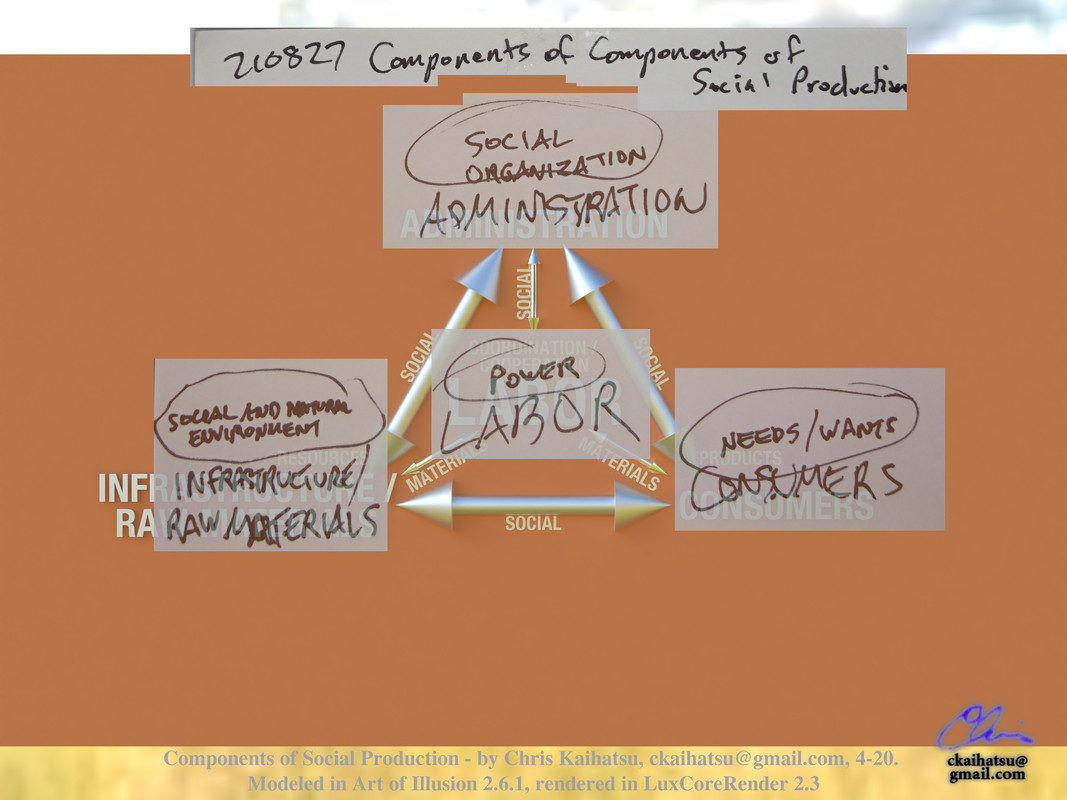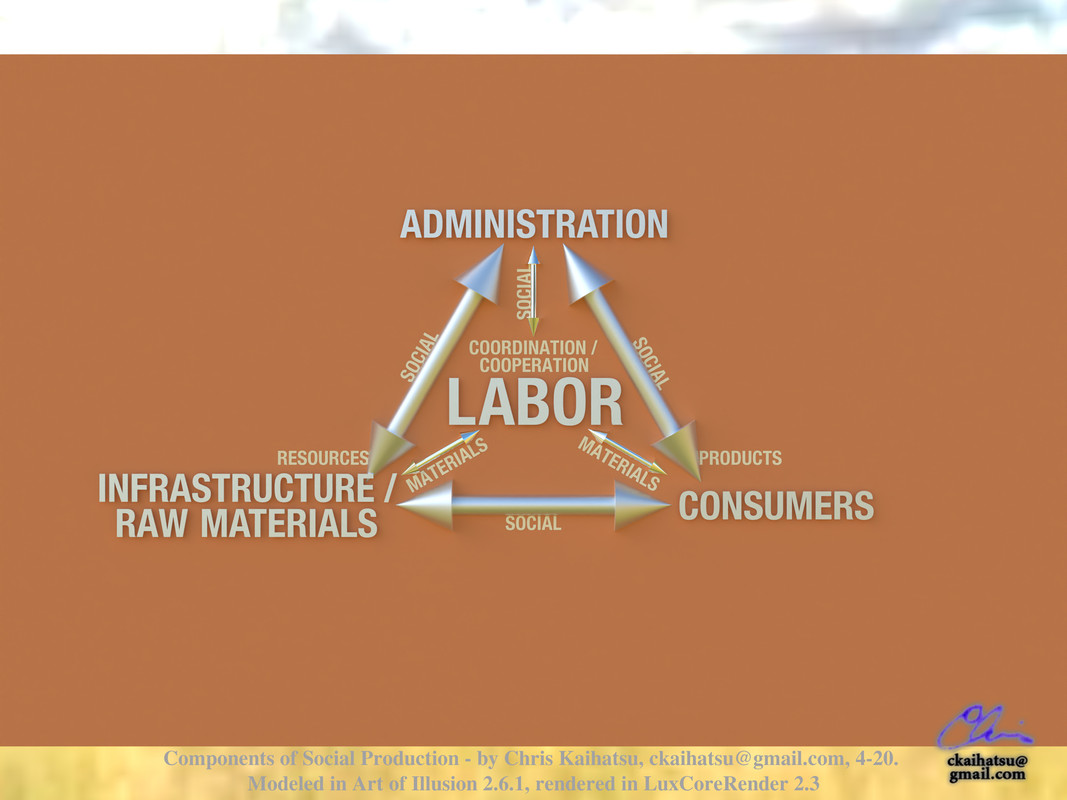@ckaihatsu,
[chaihatsu wrote:]
A hard rain
The long boom came to an abrupt end in the autumn of 1973, as Western economies went into recession simultaneously for the first time since the 1930s and unemployment doubled. This was enough to produce panic in government and business circles everywhere. Mainstream economists had never been able to explain how the slump of the 1930s had happened, and none of them could be sure they were not facing a similar situation.
In the 1950s and 1960s they had convinced themselves that slumps were no longer possible because they could apply the prescriptions of John Maynard Keynes. Business cycles were a thing of the past, the author of the world’s best-selling economic textbook, Nobel prizewinner Paul Samuelson, had assured them in 1970. But when they tried to apply Keynesian remedies to the recession they did not work. The only effect was to increase inflation while leaving unemployment untouched. By 1976 they had abandoned such methods amid panic about the danger of escalating inflation. Economists and political journalists switched overnight to a belief in the completely ‘free’ market, unconstrained by state intervention—a theory previously preached only by a few isolated prophets such as Friedrich Hayek and Milton Friedman. Such a mass conversion of intellectuals had not been seen since the days when theologians changed their ‘beliefs’ on the say-so of princes.
The popularity of the prophets of the free market could not, however, restore unemployment levels to those of the long boom. Nor could it prevent another recession at the beginning of the 1980s, doubling unemployment again and affecting even wider areas of the world than that of 1974-76.
One popular explanation for the crises of 1974-76 and 1980-82 blamed the sudden increases in the price of oil after the Arab-Israeli war of October 1973 and the outbreak of the Iran-Iraq war of 1980. But a fresh crisis broke at the beginning of the 1990s, at a time of falling oil prices. Another explanation claimed that the crisis of 1974-76 resulted from the impact of rising wages on profits. But this could not explain the later crises, since wages in the world’s single most important economy, the US, fell steadily after the mid-1970s.297
Something more fundamental in the system had changed, turning the ‘golden age’ into a ‘leaden age’. The US had been able to afford massive arms spending at the time of the Korean War, absorbing perhaps 20 percent of its total output and equal to half the surplus available for investment. This had provided markets for its own industries and for exports from states such as Japan, which spent very little on arms. But by the time of the Vietnam War competition from such countries meant the US could not afford its old level of military output. It still produced massive quantities of weaponry, but the proportion of output this absorbed was probably about a third of that at the time of the Korean War. This was simply not enough to ward off recurrent and deepening world recessions, even if they were not yet on the scale of the 1930s slump.298
This did not bring all economic growth to an end in the advanced countries. But growth was much slower and more uneven than previously, and the cycle of boom and slump had returned with a vengeance. Average output per head in the 1980s grew at less than half the rate of the early 1960s. Unemployment reached levels virtually unimaginable in the long boom, commonly staying above 10 percent for years at a time, and rising close to 20 percent in places such as Ireland and Spain. Lower rates in the US in the late 1980s and late 1990s were driven by welfare cuts which forced people to take jobs at poverty wages—the poorest 10 percent earning 25 percent less than the equivalent group in Britain.299
Generalised job insecurity became a feature everywhere.
I highlighted the part I'm referring to.
Prof. Bill Mitchell, a founder of MMT, has said, and I have posted about this here before, that =>
In the 70s, after the oil price was raised by OPEC there was inflation. The Fed. increased interest rates to fight it. All it did was to increase the inflation. Why? Bill says it is because most business own money or need to borrow and so they see increased interest rates as a higher cost, and so must raise prices because their costs increased. At least try to raise prices.
The lesson has not been learned. The Fed. again thinks that raising interest rates will do something different than just add to the inflation.
I'm not an expert, but IMHO, raising rates a little will add to price increases now because =>
If demand is 100 units/day, and supply is 70 units per day, then doing X which cuts demand from 100 to 90 while increasing costs by 5%; will just increase the price. This s because the supply stil falls 20/units/day short of the demand.
To stop inflation the thing = X most be large enough to cut demand to 70 or less to stop the price increases.
IMHO, what the Fed. is proposing is much more like cutting demand to 90, not to 70 units/day. So, it will add to the profits of the banks and increase the price level, not lower it.
Please Note: MMTers say that properly defined "inflation" refers to a *continuing* general increase in prices. So, as long as covid is causing bottlenecks in supply-chains, the higher prices are not really inflation. [Now, I'm not expert enough to know how 'inflation' is really *technically* defined. And, MS Econ has some strange technical definitions. I'm just repeating what MMTers say.]
______._____________________________________________________________________
In reply to the whole quote.
I note the all current mainstream econ. theories are built on the quicksand of false assumptions.
It is not any surprise that its predictions and policy recommendations have been wrong close to 100% of the time.
Again, IMHO, all MS econ. theories were created not to find the truth, but rather to justify policies that made their patrons more money at the expense of the nation's health, security, stability, prospects, and ability to react to covid. Also, mainly at the expense of the well being of the working class.
.












 - By Pants-of-dog
- By Pants-of-dog